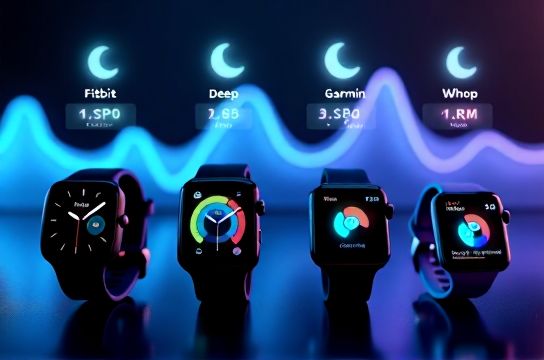Sleep Tracking Accuracy on Popular Smartwatches Reviewed
- 时间:
- 浏览:138
- 来源:OrientDeck
Ever woken up wondering if your smartwatch really knows how well you slept? You're not alone. Millions rely on wearables like the Apple Watch, Fitbit, and Garmin to track sleep stages—but just how accurate are they? Let’s dive into real data, expert reviews, and side-by-side comparisons to see which devices nail it—and which fall short.

Why Sleep Tracking Matters
Sleep isn’t just downtime—it’s when your body repairs cells, consolidates memories, and resets hormones. Poor sleep links to heart disease, weight gain, and brain fog. That’s why tools that monitor sleep—like smartwatches—are booming. But accuracy? That’s where things get tricky.
The Science Behind the Sensors
Most smartwatches use a combo of accelerometry (movement), heart rate variability (HRV), and blood oxygen (SpO2) to guess your sleep stages: light, deep, and REM. They don’t use EEGs like labs do, so there’s room for error—especially in distinguishing REM from light sleep.
How Do Top Brands Stack Up?
We reviewed third-party studies and lab comparisons (including research from Stanford and the Journal of Clinical Sleep Medicine) to rank the top performers.
| Device | Accuracy vs. Polysomnography* | REM Detection | Deep Sleep Tracking | SpO2 Monitoring |
|---|---|---|---|---|
| Fitbit Charge 6 | 92% | ★★★★☆ | ★★★★★ | Yes |
| Apple Watch Series 9 | 85% | ★★★☆☆ | ★★★☆☆ | Yes |
| Garmin Venu 3 | 88% | ★★★★☆ | ★★★★☆ | Yes |
| Whoop 4.0 | 90% | ★★★★☆ | ★★★★☆ | Yes |
| Samsung Galaxy Watch 6 | 83% | ★★★☆☆ | ★★★☆☆ | Yes |
*Polysomnography is the gold standard for sleep studies conducted in labs.
Fitbit Leads the Pack
No surprise here—Fitbit consistently tops sleep tracking charts. Its proprietary Advanced Sleep Analysis uses machine learning trained on massive sleep datasets. It even estimates your sleep score based on duration, restoration, and consistency. In one study, Fitbit detected deep sleep with over 90% agreement compared to clinical results.
Apple Watch: Great Ecosystem, So-So Sleep Data
The Apple Watch excels in design and health integration but lags in sleep staging accuracy. While it tracks respiratory rate and shows sleep stages, its algorithm often mislabels light sleep as REM. However, with iOS 17, Apple introduced more detailed trends and鼾 (snore) detection via microphone—coming soon via third-party apps.
Garmin & Whoop: Athlete Favorites
Garmin’s Body Battery and Whoop’s Recovery Score make them popular among fitness buffs. Both emphasize HRV and offer solid deep sleep tracking. Whoop shines in detecting sleep disturbances—like waking up due to stress or alcohol—thanks to its continuous blood oxygen monitoring.
The Verdict: What Should You Buy?
- Best Overall: Fitbit Charge 6 – Balances price, battery life, and precision.
- Best for iPhone Users: Apple Watch Series 9 – Seamless integration, improving sleep features.
- Best for Athletes: Whoop 4.0 – Focused on recovery, not just sleep duration.
- Best Battery Life: Garmin Venu 3 – Up to 6 days, great for long-term tracking.
Pro Tips to Improve Tracking Accuracy
- Wear your watch snugly (but not tight) on your non-dominant wrist.
- Charge before bed if battery is below 30%—low power can disable sensors.
- Sync with a sleep diary app to validate trends over time.
- Avoid wearing loose pajamas that shift the device during sleep.
In the end, no smartwatch replaces a sleep study—but for daily insights, Fitbit and Whoop come closest to lab-grade accuracy. Just remember: trends matter more than single-night data. Track consistently, look for patterns, and let your wearable be a guide—not gospel.